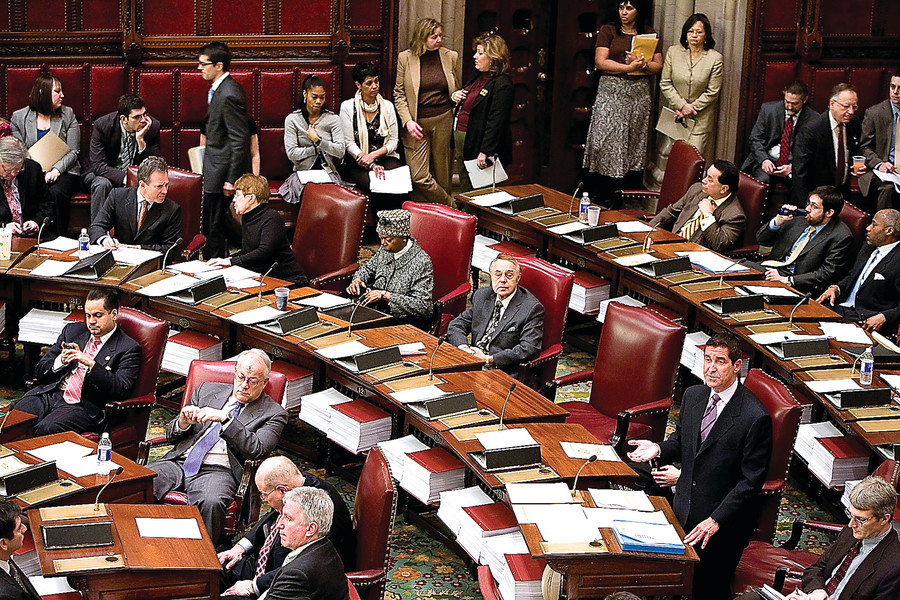Start reform with open process
There’s a perverse irony in the fact that negotiations about ethics reform in the corruption-stained state capitol are conducted in secret. Time and again we’ve seen the governor, the Assembly speaker and the Senate majority leader huddle about the budget, school aid, housing regulations or ethics and campaign finance reform, and then make a grand announcement about how wonderful changes are coming soon.
Actually, we haven’t so much seen the three men in a room (plus their pal, the sometime Senate co-leader Jeff Klein) as heard about it afterward. That’s the point.
Implicit in ethics reform is that discussions about what’s wrong, and what must be done right, and how, should be held in the light of day, in public meetings and open hearings, not in closed-door negotiating sessions. When will the governor and elected leaders realize that the current legislative process is one of the problems? Everything is a deal. This for that. Wheeling and dealing.
In August 2011, Gov. Andrew Cuomo signed the Public Integrity Reform Act. His press release at the time said the law established “unprecedented transparency.” The act, he said, was “a major step forward in restoring the people’s trust in government and changing the way Albany does business.”
He has repeated such statements every time he has gotten the legislators to pass another law that boasts “unprecedented transparency” or when he establishes another commission to investigate corruption. He touts these politically popular actions until the law is revealed to be ineffective, or until he dissolves the commission without good reason and before its work is done.
Thirty-three legislators have left office due to criminal or ethical issues since 2000 — 15 in the last five years, according to Citizens Union, a good-government group. That includes, infamously, former Senate Majority Leader Dean Skelos and former Assembly Speaker Sheldon Silver.
Long after Mr. Cuomo and the legislators took “a major step forward” on battling corruption, we have legislators convicted of conspiracy, extortion, soliciting bribes, money laundering, lying under oath, mail fraud, sexual harassment and providing no-show jobs. And that’s just in the past five years.
And still, the governor and the legislature keep their ethics reform negotiations confidential. Why?
As Citizens Union, the League of Women Voters, the Brennan Center for Justice at NYU Law School, Common Cause NY, the New York Public Interest Research Group and Reinvent Albany recently stated, the legislature must “hold open public leaders meetings to discuss and negotiate — in public — ethics reforms necessary to restore New Yorkers’ battered confidence in Albany.”
A letter those good-government groups sent to Mr. Cuomo, Majority Leader John Flanagan, Assembly Speaker Carl Heastie and others says it best:
“Instead of closed-door negotiations accompanied by separate public pronouncements and finger pointing, we recommend something different: a public discussion and negotiation to solve the ethics problems plaguing state government. We call on you to hold an open leaders meeting, with one topic — ethics.
“It is, after all, the people’s government,” the letter added. “And it is clear that the public is sick of what they have seen. As the people’s representatives, we urge you to open up the Capitol’s windows and let the sun shine in — let the people see and hear the plans you collectively have to respond to Albany’s ethics crisis. And then, show New Yorkers — the people who voted for you, whose tax dollars pay for government — that you can collectively solve this shocking problem.”
A version of this editorial originally appeared in our sister publications, the Long Island Herald newspapers.






